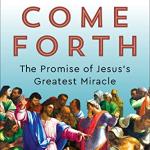
Which Biblical author has the worst run-on sentences?
In my quest to be a better author, I am trying to learn to avoid common writing mistakes, such as run-on sentences, showing rather than telling, and author intrusion. But as bad as my writing faux pas are, I’ll tell you who was the worst at run-on sentences—the apostle Paul. Yes, the apostle Paul, who wrote over half of the New Testament. Look up Ephesians 1:3-14. (It’s too long to print.) This passage is a single 202-word sentence in the Greek. Perhaps run-on sentences were more acceptable in Greek. Paul was also careless about telling rather than showing, author intrusion, and unnecessary repetition. Yet he wrote a best-seller! Or at least several chapters in a best-seller.
I find myself editing Paul’s words and figuring out ways he could have gotten his point across in a more efficient manner. Editing Paul’s inspired words sort of defeats the purpose of internalizing the spiritual message he was trying to convey. Nevertheless, the writer in me can’t seem to help myself. If Paul could get away with writing faux pas, why can’t I? Well, perhaps because God didn’t call me to write in the same way He called Paul. Besides, I don’t necessarily want to have to go through all the trials Paul suffered simply to become a best-selling author. And I sincerely doubt Paul received any royalties on his contribution to the Bible.
My writing ego deflated
A few years ago, I took a workshop from an agent who outlined step-by-step what agents and editors are looking for in a book proposal—at least what he was looking for. Every other agent and editor has his/her own guidelines. So, I came home, reviewed my notes, and painstakingly composed a several-page book proposal on which I spent more time than I did writing the book. On top of that, it wasn’t any fun. It was like writing a book report on my own book. But I wrote it, just as instructed, to provide this agent with a fantastic proposal which he couldn’t refuse. Then, at a later conference, I presented my book proposal to the agent and sat quietly while he perused it. Sitting quietly while an agent reads through your work is sheer torture.

He nodded while reading the first few pages, and I thought I’d nailed it. Then he turned to my sample chapters. In fifteen seconds, he destroyed half of my work in the first three paragraphs with vicious strokes of his pen.
“Here,” he said, “resist the urge to explain.” He marked RUE in several places.
“Here, show, don’t tell.”
“Here, you are not in the character’s point of view.” POV was scratched in other places.

Why can other writers get away with the same mistakes I can’t?
Well. Shoot. My Christian writing group had already critiqued this chapter and they liked it. I have struggled very hard to stay in my character’s point of view, to use strong verbs, to show instead of tell, to fire the narrator and let the characters tell the story, and to remove superfluous words. I want to know why I get blackmarked for every little nitpicky (in my untrained, amateur, humble opinion) word while famous authors can break all the rules and get away with anything. Plus, having to keep all these editing faux pas in my brain ruins my enjoyment of reading for pleasure.
For example, in the book I am currently reading by a well-known author, she used four unnecessary “thats” in two pages! And in the same two pages, she started two sentences with “ing” verbs, which for some reason I have yet to understand is a sign of an amateur writer. I find I’m editing this book, rather than reading it, which defeats the purpose of enjoying the story.
There is another best-selling author who “head hops” with abandonment. First, he’s telling the story from “character one’s” perspective, then without switching scenes, he’s suddenly in “character two’s” perspective. Yet he’s rich and famous and I’m not! How did he get rich and famous? Why didn’t his agent or editor reject his manuscripts for violating rules on point of view?
How about run-on sentences? I can’t even read a third best-selling author’s books because of her run-on sentences which don’t connect anything. She writes sentences like, “Tom was very handsome and his mother made cakes to sell at the rummage sale and there was a fire down the street at the abandoned warehouse and Susie disliked her new teacher and Fido, was run over by a car.” This author is also not a big fan of commas.

Would the Bible have been published if evaluated by today’s publishing standards?
Going back to Paul, I have to wonder at the fact that despite all his writing flaws, God used Paul to record His inspired words. Paul’s writings are published in the best-selling book of all times, the Bible. Hmm. I wonder if Paul would have made it by today’s rigid publishing standards. Just sayin’.

















